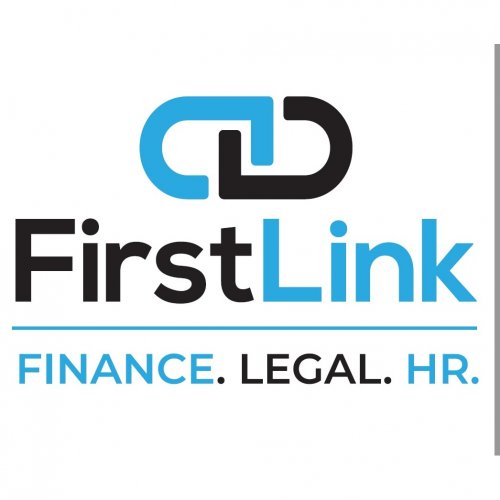Best Private Equity Lawyers in Port of Spain
Share your needs with us, get contacted by law firms.
Free. Takes 2 min.
List of the best lawyers in Port of Spain, Trinidad and Tobago
About Private Equity Law in Port of Spain, Trinidad and Tobago
Private Equity (PE) plays an increasingly important role in the financial landscape of Port of Spain, the capital city of Trinidad and Tobago. Private equity refers to investment funds or individuals that acquire equity ownership in private companies, often to restructure, expand, or enhance the company's value before eventually selling their stake. In Port of Spain, the private equity sector is evolving, with local and international investors taking a keen interest in emerging businesses and established enterprises seeking capital for growth. Private equity law governs the acquisition, management, and exit strategies of these investments, setting the legal parameters for ownership, compliance, investor protections, and dispute resolution.
Why You May Need a Lawyer
Engaging in private equity transactions can be complex and risky without proper legal guidance. You may need a lawyer for private equity matters in Port of Spain for several common reasons:
- Drafting and reviewing investment agreements and shareholder arrangements
- Conducting due diligence to assess risks and verify information about target companies
- Negotiating terms with investors, co-investors, and existing owners
- Navigating regulatory requirements or obtaining necessary approvals from local authorities
- Ensuring compliance with anti-money laundering and Know Your Customer regulations
- Advising on taxation implications of private equity investments
- Structuring funds or investment vehicles to suit local and international standards
- Resolving disputes between investors, managers, or other stakeholders
- Implementing exit strategies, such as public offerings, mergers, or sales
Having a lawyer ensures your interests are protected throughout every phase of the transaction, helping prevent costly mistakes and legal challenges.
Local Laws Overview
Several key legal frameworks in Trinidad and Tobago affect private equity deals in Port of Spain. Understanding these frameworks helps investors and business owners operate within legal bounds and avoid pitfalls:
- Companies Act: Governs the formation, operation, mergers, and acquisitions of companies, including shareholder rights and reporting obligations.
- Securities Act: Regulates the offering and trading of securities, disclosures, and anti-fraud provisions relevant to private equity funds and offerings.
- Foreign Investment Act: Sets out rules if foreign investors are involved, including registration and approval requirements.
- Anti-Money Laundering and Counter Financing of Terrorism (AML/CFT) laws: Imposes due diligence and reporting obligations on entities engaged in financial transactions, including private equity funds and their managers.
- Taxation Law: Covers capital gains, withholding tax, and other fiscal aspects of PE deals affecting both local and international investors.
- Contract Law: Enforces agreements arising from private equity transactions, ensuring that the negotiated terms are legally binding.
Regulatory bodies such as the Trinidad and Tobago Securities and Exchange Commission (TTSEC) and the Financial Intelligence Unit (FIU) oversee and enforce compliance with these laws.
Frequently Asked Questions
What is private equity?
Private equity involves investment in privately held businesses, usually by funds or investors seeking to grow, reorganize, or ultimately sell their interests for a profit.
Can foreign investors participate in private equity in Trinidad and Tobago?
Yes, but foreign investors may need to comply with the Foreign Investment Act, which requires registration and sometimes approval for significant stakes in local companies.
What legal documents are vital in a private equity deal?
Key documents include the Shareholders Agreement, Investment Agreement, Due Diligence Reports, Subscription Agreements, and any regulatory filings required for compliance.
Do private equity funds need to register with any local regulators?
Depending on the structure, some private equity funds may need to register with the Trinidad and Tobago Securities and Exchange Commission.
How is due diligence conducted in private equity transactions?
Due diligence usually involves legal, financial, and operational reviews of the target company, including verifying assets, liabilities, contracts, legal compliance, and financial health.
What are common exit strategies for private equity investments?
Common exit strategies include public listings, company buybacks, secondary sales to other investors, or mergers and acquisitions.
What are the tax implications of private equity investments?
Investors should consider capital gains, withholding tax, and corporate tax rules. Local laws and double taxation agreements may affect the tax treatment of these investments.
What are the risks of private equity investing in Port of Spain?
Risks include changes in local regulation, economic volatility, business underperformance, litigation, or compliance issues. Legal advice can help mitigate these risks.
Is private equity regulated differently than public equity?
Yes, private equity generally faces less stringent public disclosure requirements but may have specific rules regarding registration, reporting, and investor protections.
How can I find a reputable private equity lawyer in Port of Spain?
You can consult the Law Association of Trinidad and Tobago, seek recommendations from business contacts, or contact local law firms experienced in corporate and securities law.
Additional Resources
- Trinidad and Tobago Securities and Exchange Commission (TTSEC): Regulatory authority for securities and investment funds
- Financial Intelligence Unit (FIU): Responsible for monitoring AML/CFT compliance
- Law Association of Trinidad and Tobago: Directory of licensed attorneys and firms
- Ministry of Finance: Information on taxation and investment incentives
- Trinidad and Tobago Stock Exchange (TTSE): Market information and public company data
These resources can provide additional legal, regulatory, and practical information on private equity activities in Port of Spain.
Next Steps
If you are considering a private equity investment or transaction in Port of Spain, here are steps you can take to protect your interests:
- Clearly define your investment goals and the type of business or sector you are interested in
- Conduct preliminary research to understand the market and regulatory environment
- Consult a qualified lawyer specializing in private equity law in Trinidad and Tobago to guide you through legal compliance, structuring, and negotiations
- Work with your legal advisor to perform thorough due diligence on the target company or investment opportunity
- Ensure all legal documents and agreements are professionally drafted and reviewed
- Maintain open communication with your lawyer throughout the investment process, especially regarding regulatory changes or disputes
By seeking experienced legal advice and staying informed about local laws and regulations, you can navigate the private equity landscape in Port of Spain with greater confidence and security.
Lawzana helps you find the best lawyers and law firms in Port of Spain through a curated and pre-screened list of qualified legal professionals. Our platform offers rankings and detailed profiles of attorneys and law firms, allowing you to compare based on practice areas, including Private Equity, experience, and client feedback.
Each profile includes a description of the firm's areas of practice, client reviews, team members and partners, year of establishment, spoken languages, office locations, contact information, social media presence, and any published articles or resources. Most firms on our platform speak English and are experienced in both local and international legal matters.
Get a quote from top-rated law firms in Port of Spain, Trinidad and Tobago — quickly, securely, and without unnecessary hassle.
Disclaimer:
The information provided on this page is for general informational purposes only and does not constitute legal advice. While we strive to ensure the accuracy and relevance of the content, legal information may change over time, and interpretations of the law can vary. You should always consult with a qualified legal professional for advice specific to your situation.
We disclaim all liability for actions taken or not taken based on the content of this page. If you believe any information is incorrect or outdated, please contact us, and we will review and update it where appropriate.














